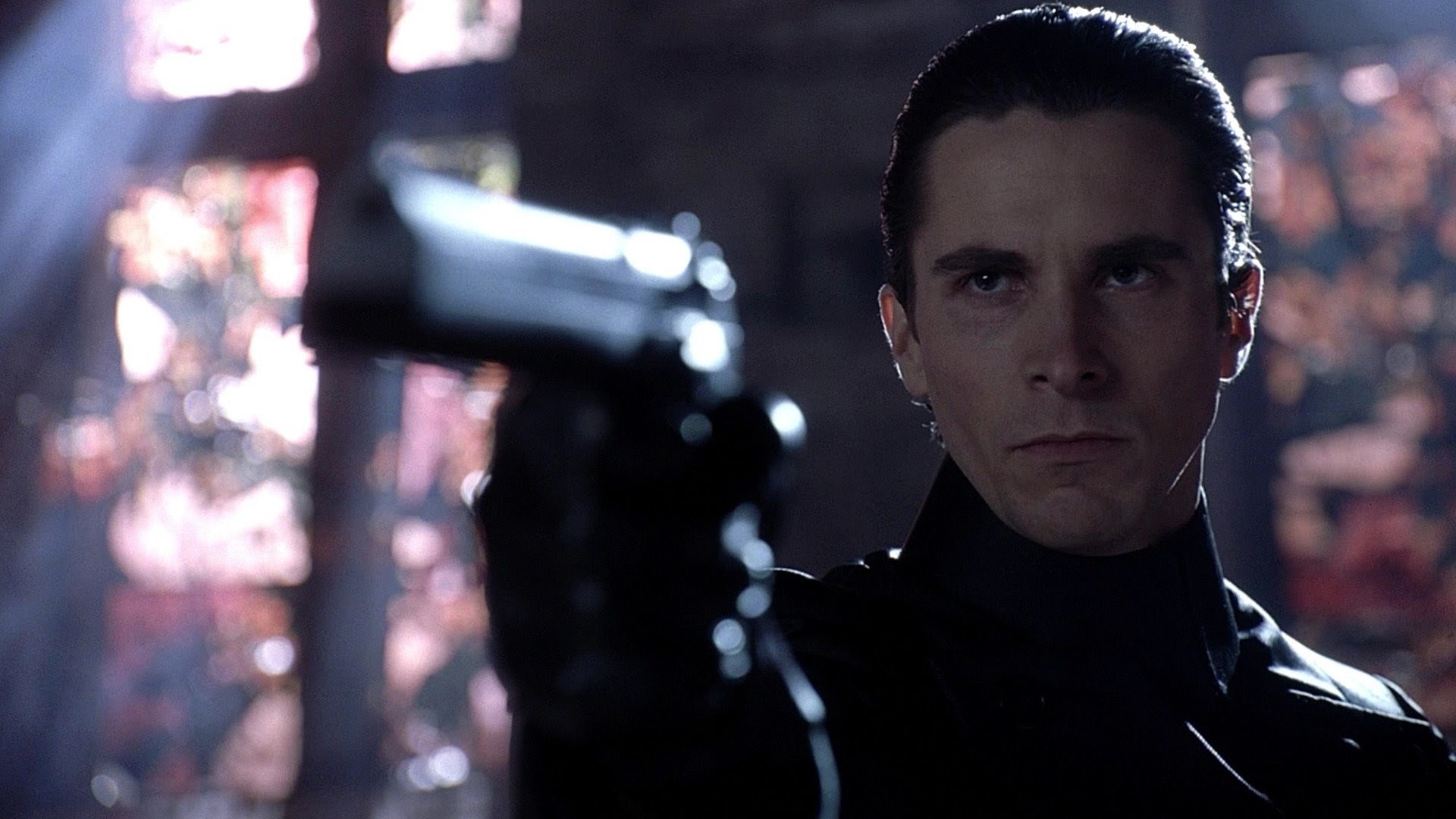Equilibrium (2002)

“Equilibrium,” directed and written by Kurt Wimmer, is a 2002 American science fiction film that presents a dystopian vision of a future society where emotions are suppressed to maintain order and prevent conflict. Starring Christian Bale, Emily Watson, and Taye Diggs, the film explores themes of totalitarianism, individuality, and the nature of human emotion. This essay provides an in-depth analysis of “Equilibrium,” examining its plot, directorial approach, character development, thematic elements, and critical reception.
“Equilibrium” is set in a future dystopia where a totalitarian regime known as the Tetragrammaton Council governs with an iron fist. In this world, emotions are considered the root of conflict and chaos. To ensure compliance, the government mandates the use of a drug called “Prozium” that suppresses all emotions in the population. Anyone who fails to take the drug or is found to be harboring emotions is labeled as a “sense offender” and is eliminated by the Clerics, elite enforcers of the regime.
The story follows John Preston (Christian Bale), a top Cleric who enforces the laws of emotional suppression with unwavering commitment. His world is turned upside down when he misses a dose of Prozium and begins to experience emotions for the first time. As Preston grapples with the newfound feelings and the oppressive nature of the regime, he begins to question the system he once served. He discovers a resistance movement that seeks to overthrow the Tetragrammaton Council and restore emotions and freedom to society.
The film’s setting—a bleak, monochromatic cityscape marked by stark architecture and regimented order—reflects the suppression of individuality and creativity imposed by the totalitarian regime. The atmosphere of the film underscores the themes of control and resistance that are central to the narrative.
Kurt Wimmer’s direction in “Equilibrium” is characterized by its focus on creating a visually striking and thought-provoking dystopian world. Wimmer combines elements of classic science fiction with a unique aesthetic to build a compelling and immersive setting. His direction emphasizes the stark contrasts between the controlled, emotionless society and the vibrant, chaotic experiences of emotional awakening.
The cinematography, led by Dion Beebe, plays a significant role in establishing the film’s tone. The use of muted colors, symmetrical compositions, and minimalist set designs reinforces the cold, oppressive nature of the regime. The film’s action sequences, particularly the “gun kata” martial arts style, are visually distinctive and contribute to the film’s dynamic energy. The choreography of these sequences, combined with rapid editing and stylized visuals, creates a striking and memorable impact.
The production design, overseen by Alex McDowell, contributes to the film’s futuristic and authoritarian atmosphere. The stark, industrial environments and uniform clothing of the characters reflect the regimented control of the society and enhance the film’s thematic exploration of repression and conformity.
Christian Bale’s portrayal of John Preston is a central element of the film’s success. Bale delivers a nuanced performance that captures Preston’s transformation from a dutiful enforcer of the regime to a conflicted individual awakening to the full spectrum of human emotion. Bale’s ability to convey both the cold precision of Preston’s early character and the emotional depth of his later transformation is a testament to his range as an actor.
Emily Watson plays Mary O’Brien, Preston’s partner and later a key figure in his emotional awakening. Watson brings warmth and depth to the role, contributing significantly to the film’s exploration of human connection and resistance against oppression. Her interactions with Bale’s character highlight the personal stakes of the narrative and add emotional weight to the story.
Taye Diggs portrays Brandt, a fellow Cleric and antagonist who remains loyal to the regime. Diggs delivers a strong performance, presenting Brandt as a complex character who grapples with loyalty and the pressures of maintaining control. His character adds depth to the conflict within the regime and highlights the internal and external struggles faced by those enforcing the system.
The supporting cast, including actors like Sean Bean and William Fichtner, contribute to the film’s rich character dynamics and thematic depth. Their performances enhance the narrative and provide additional layers to the story’s exploration of resistance and authority.

“Equilibrium” explores several themes, including totalitarianism, emotional suppression, and individuality. The film presents a dystopian society where emotions are banned to prevent conflict, reflecting fears about the potential consequences of absolute control and the suppression of personal freedoms.
The theme of totalitarianism is central to the film, depicting a regime that exerts extreme control over its citizens. The oppressive nature of the Tetragrammaton Council and the pervasive surveillance and enforcement mechanisms illustrate the dangers of unchecked authority and the dehumanizing effects of authoritarian rule.
Emotional suppression is a key theme, with the film examining the consequences of a society that denies its inhabitants the full range of human experience. The suppression of emotions is portrayed as a means of control that ultimately leads to a lack of empathy, creativity, and individuality. The narrative emphasizes the importance of emotions in defining humanity and driving personal and societal growth.
Individuality and personal freedom are explored through Preston’s journey. His awakening to emotions represents a reclaiming of his individuality and a rejection of the system’s dehumanizing control. The film suggests that the ability to experience and express emotions is essential to personal identity and human connection.

“Equilibrium” received a mixed to positive reception from critics. The film was praised for its innovative action sequences, particularly the “gun kata” choreography, and its visual style. Christian Bale’s performance and the film’s exploration of dystopian themes were also highlighted as strengths.
However, some critics felt that the film’s narrative and thematic elements were uneven, with certain aspects of the plot and character development receiving less attention. The film’s reliance on action and visual style sometimes overshadowed its deeper thematic exploration.
Despite these criticisms, “Equilibrium” has garnered a cult following and is appreciated for its unique take on the dystopian genre. Its exploration of themes related to control, emotion, and individuality resonates with audiences who enjoy thought-provoking science fiction and action films.

“Equilibrium” (2002) is a visually striking and thematically rich science fiction film that offers a compelling exploration of a dystopian society where emotions are suppressed to maintain control. Through Kurt Wimmer’s direction, Christian Bale’s performance, and its distinctive visual style, the film provides a powerful commentary on the dangers of totalitarianism and the importance of emotional freedom. While it faces some criticisms regarding its narrative and thematic execution, “Equilibrium” remains a notable contribution to the science fiction genre and continues to resonate with audiences for its unique and thought-provoking approach to dystopian storytelling.










